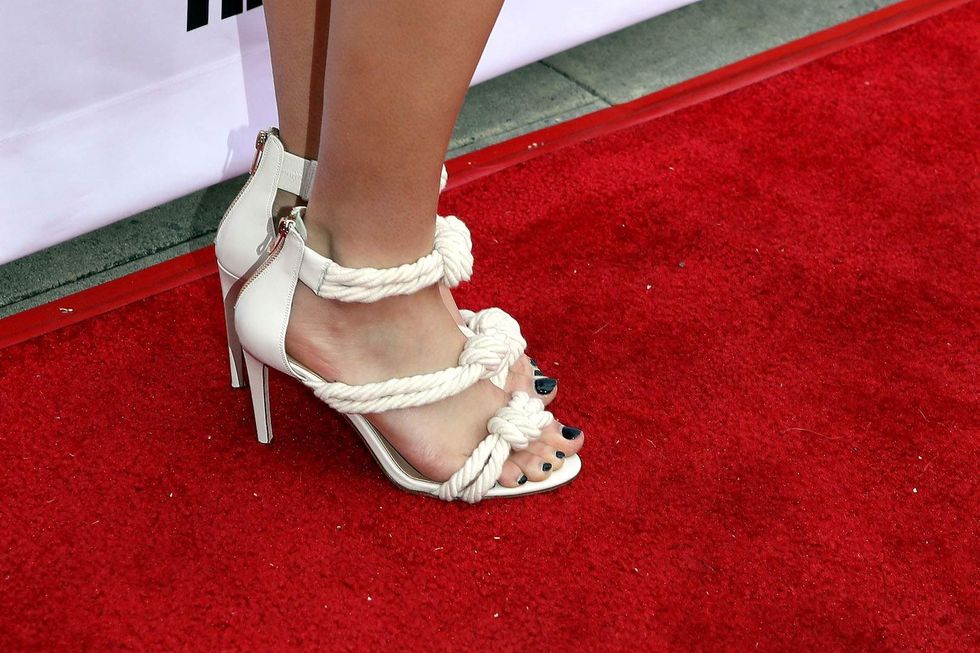
British Parliament is debating harsher penalties on employers who require women to wear high heels. (Randy Shropshire/Getty Images for Outfest)

The U.K. Parliament last week debated whether workplaces should be allowed to force women to wear high heels or if it was a form of gender discrimination.
Members heard the argument after a petition was signed by more than 152,000 people last year requesting that Parliament make it illegal for employers to require female employees to wear high heels. Creator of the petition Nicola Thorp said she was sent home on her first day of work after refusing to wear high heels. Her company, Portico, required that women wear heels between two-and-four inches high.
"Dress code laws should be changed so that women have the option to wear flat formal shoes at work, if they wish. Current formal work dress codes are out-dated and sexist," Thorp said in the petition.
Whether she was aware of the dress code before signing on with the company is not known.
The House of Commons Petition Committee launched an investigation into the matter last year and issued a report on their findings in January. According to BBC, members of Parliament said they were "shocked" at the stories submitted, which included one woman who said she was told to color her hair blonde.
"It has become clear in the course of our inquiry that this was not an isolated incident — and nor is the problem confined to high heels," members of Parliament said in response to the report findings. "We heard from hundreds of women who told us about the pain and long-term damage caused by wearing high heels for long periods in the workplace, as well as from women who had been required to dye their hair blonde, to wear revealing outfits, and to constantly reapply make-up."
Though the details or validity of these workplace accounts are not known, the stories submitted certainly made an impression on members of Parliament, specifically the Petitions Committee.
"It is fair to say that what we found shocked us," Petitions Committee Chair Helen Jones said. "We found attitudes that belonged more [to the] — was going to say 1950s but probably the 1850s might be more accurate — than the 21st Century."
As a result, the Petitions Committee recommended the British government pass more measures to regulate private business dress codes, according to Reason. The committee's recommendation included more monitoring of private business dress codes, higher financial penalties for companies who have committed dress-code gender discrimination, and more tax dollars funneled to public awareness campaigns that target employers, workers, and students.
Sara Gonzales
BlazeTV Host